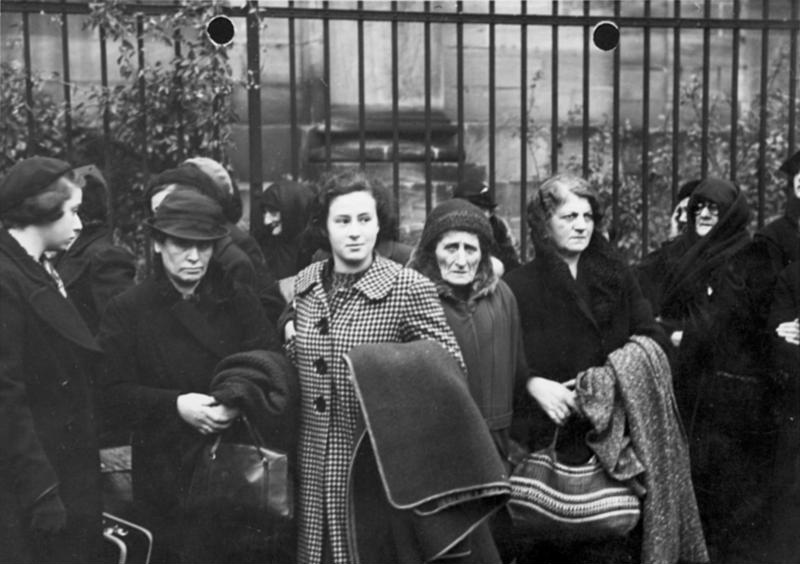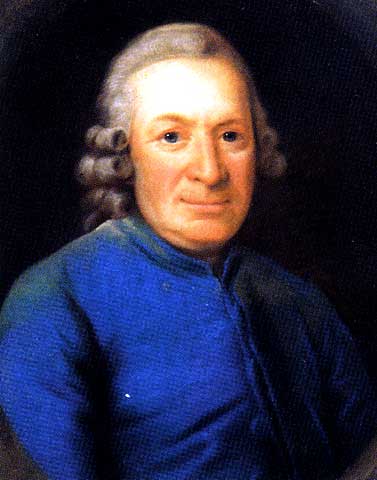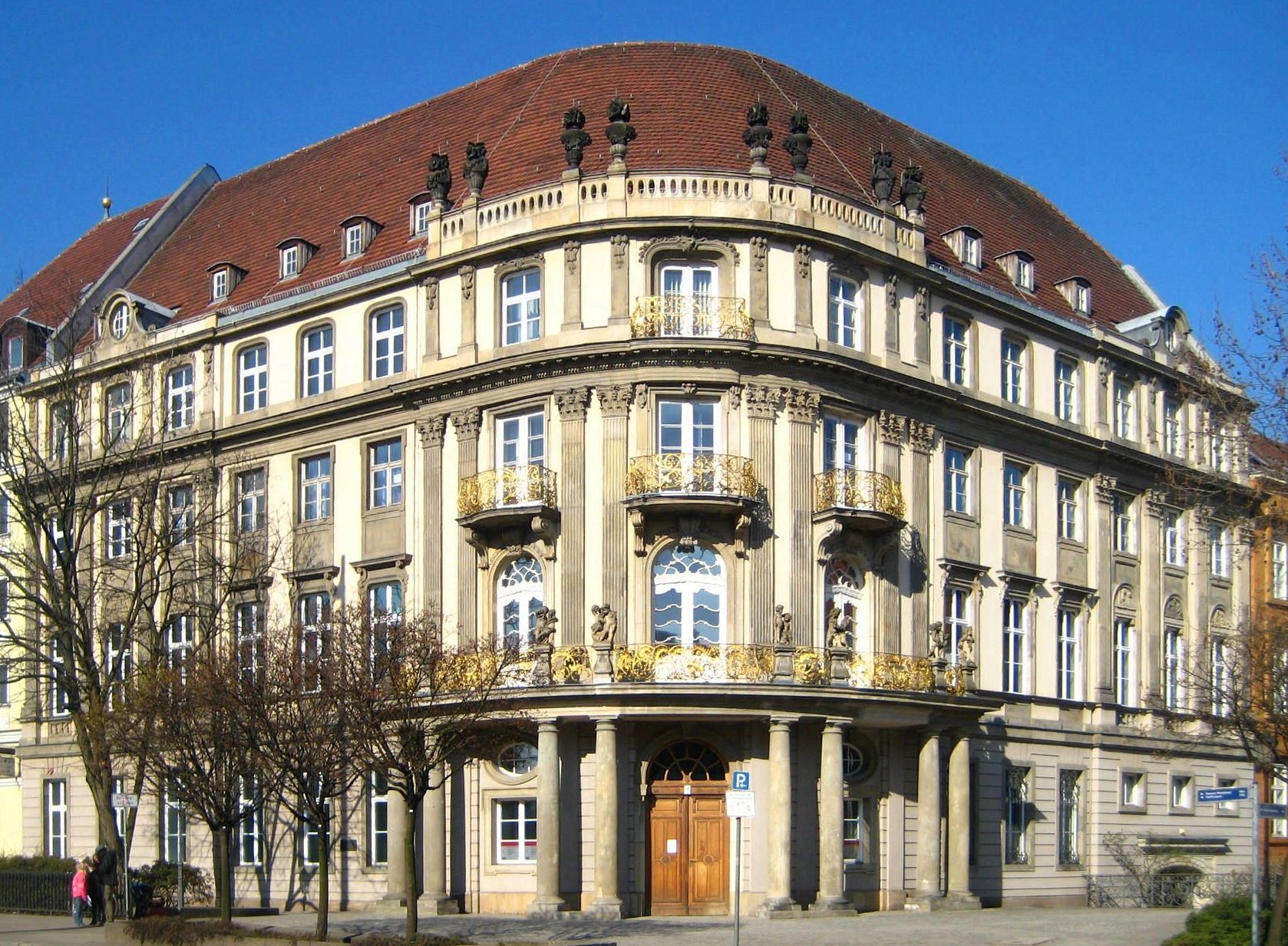|
Selma Stern
Selma Stern-Täubler (born 24 July 1890, Kippenheim, Germany – died 17 August 1981, Basel) was one of the first women to become a professional historian in Germany, and the author of a seven-volume work (3,740 pages) ''The Prussian State and the Jews'', her opus magnum. Life Selma Stern grew up in an upper-middle-class Jewish family; her father was a physician. In 1901 the family moved to Baden-Baden. In 1904 she was the first girl to attend the ''Großherzogliches Badisches Gymnasium (Germany), Gymnasium'', a boys highschool, from which she graduated in 1908. She studied history, philosophy and philology at the University of Heidelberg, but left after three semesters and graduated at the Ludwig Maximilian University of Munich in 1913 on Anacharsis Cloots. In 1914 she moved to Frankfurt to live with her mother and sister and started a career in German-Jewish history on a freelance basis. Shortly after the founding of the ''Hochschule für die Wissenschaft des Judentums, Akademi ... [...More Info...] [...Related Items...] OR: [Wikipedia] [Google] [Baidu] |
Kippenheim
Kippenheim ( gsw, label= Low Alemannic, Kibbennä) is a town in the district of Ortenau in Baden-Württemberg in Germany. Kippenheim has restored its pre-war synagogue. Notable residents *Stef Wertheimer Stef Wertheimer ( he, זאב סטף ורטהיימר, born 16 July 1926) is an Israeli billionaire industrialist, investor, philanthropist and former politician. He was a Member of the Knesset, and is known for founding industrial parks in Israe ... (born 1926), German-born Israeli entrepreneur, industrialist and politician References Ortenaukreis Baden {{Ortenaukreis-geo-stub ... [...More Info...] [...Related Items...] OR: [Wikipedia] [Google] [Baidu] |
Kristallnacht
() or the Night of Broken Glass, also called the November pogrom(s) (german: Novemberpogrome, ), was a pogrom against Jews carried out by the Nazi Party's (SA) paramilitary and (SS) paramilitary forces along with some participation from the Hitler Youth and German civilians throughout Nazi Germany on 9–10 November 1938. The German authorities looked on without intervening.German Mobs' Vengeance on Jews", ''The Daily Telegraph'', 11 November 1938, cited in The name (literally 'Crystal Night') comes from the shards of broken glass that littered the streets after the windows of Jewish-owned stores, buildings and synagogues were smashed. The pretext for the attacks was the assassination of the German diplomat Ernst vom Rath by Herschel Grynszpan, a 17-year-old German-born Polish Jew living in Paris. Jewish homes, hospitals and schools were ransacked as attackers demolished buildings with sledgehammers. Rioters destroyed 267 synagogues throughout Germany, Austria and the ... [...More Info...] [...Related Items...] OR: [Wikipedia] [Google] [Baidu] |
1890 Births
Year 189 ( CLXXXIX) was a common year starting on Wednesday (link will display the full calendar) of the Julian calendar. At the time, it was known as the Year of the Consulship of Silanus and Silanus (or, less frequently, year 942 ''Ab urbe condita''). The denomination 189 for this year has been used since the early medieval period, when the Anno Domini calendar era became the prevalent method in Europe for naming years. Events By place Roman Empire * Plague (possibly smallpox) kills as many as 2,000 people per day in Rome. Farmers are unable to harvest their crops, and food shortages bring riots in the city. China * Liu Bian succeeds Emperor Ling, as Chinese emperor of the Han Dynasty. * Dong Zhuo has Liu Bian deposed, and installs Emperor Xian as emperor. * Two thousand eunuchs in the palace are slaughtered in a violent purge in Luoyang, the capital of Han. By topic Arts and sciences * Galen publishes his ''"Treatise on the various temperaments"'' (aka ''O ... [...More Info...] [...Related Items...] OR: [Wikipedia] [Google] [Baidu] |
Black Death
The Black Death (also known as the Pestilence, the Great Mortality or the Plague) was a bubonic plague pandemic occurring in Western Eurasia and North Africa from 1346 to 1353. It is the most fatal pandemic recorded in human history, causing the deaths of people, peaking in Europe from 1347 to 1351. Bubonic plague is caused by the bacterium ''Yersinia pestis'' spread by fleas, but it can also take a secondary form where it is spread by person-to-person contact via aerosols causing septicaemic or pneumonic plagues. The Black Death was the beginning of the second plague pandemic. The plague created religious, social and economic upheavals, with profound effects on the course of European history. The origin of the Black Death is disputed. The pandemic originated either in Central Asia or East Asia before spreading to Crimea with the Golden Horde army of Jani Beg as he was besieging the Genoese trading port of Kaffa in Crimea (1347). From Crimea, it was most likely carried ... [...More Info...] [...Related Items...] OR: [Wikipedia] [Google] [Baidu] |
Josel Of Rosheim
Josel of Rosheim (alternatively: Joselin, Joselmann, Yoselmann, german: Josel von Rosheim, he, יוסף בן גרשון מרוסהים ''Joseph ben Gershon mi-Rosheim'', or ''Joseph ben Gershon Loanz''; c. 1480 – March, 1554) was the great advocate ("''shtadlan''") of the German and Polish Jews during the reigns of the Holy Roman Emperor Maximilian I and Charles V. Maximilian I appointed him as governor of all Jews of Germany, a position which was confirmed after his death by his grandson, Charles V. His stature among the Jews, and the protected status he gained for himself and for the Jews within the Holy Roman Empire, rested in part on his skills as an advocate and in part from the Jewish role in financing the expenses of the emperor. Josel of Rosheim remains a major figure of the History of Jews in Alsace. Family background One of his ancestors was Jacob ben Jehiel Loans, personal physician to emperor Frederick III, ennobled for his medical achievements, and also Hebrew t ... [...More Info...] [...Related Items...] OR: [Wikipedia] [Google] [Baidu] |
Joseph Süß Oppenheimer
Joseph Süß Oppenheimer (1698? – February 4, 1738) was a German Jewish banker and court Jew for Duke Karl Alexander of Württemberg in Stuttgart. Throughout his career, Oppenheimer made scores of powerful enemies, some of whom conspired to bring about his arrest and execution after Karl Alexander's death. In the centuries since his execution, Oppenheimer's rise and fall have been treated in two notable literary works, and his ordeal inspired two films, including the antisemitic production ''Jud Süß'', released in Nazi Germany in 1940, itself the cause for a famous postwar trial. Career Oppenheimer was born in Heidelberg to a Jewish tax collector and his wife. The father died early, and the exact whereabouts of Joseph Süß in the following years are not certain. By the 1720s, however, Oppenheimer was already working as a court Jew in Mannheim, Darmstadt, and finally Frankfurt am Main, where he was introduced to Karl Alexander, the future Duke of Württemberg, in 1732. Whe ... [...More Info...] [...Related Items...] OR: [Wikipedia] [Google] [Baidu] |
Charles William Ferdinand, Duke Of Brunswick-Wolfenbüttel
Charles William Ferdinand (german: Karl Wilhelm Ferdinand; 9 October 1735 – 10 November 1806) was the Prince of Brunswick-Wolfenbüttel and Duke of Brunswick-Lüneburg and a military leader. His titles are usually shortened to Duke of Brunswick in English-language sources. He succeeded his father as sovereign prince of the Principality of Brunswick-Wolfenbüttel, one of the princely states of the Holy Roman Empire. The duke was a cultured and benevolent despot in the model of his uncle, Frederick the Great, and was married to Princess Augusta, a sister of George III of Great Britain. He was also a recognized master of 18th century warfare, serving as a Field Marshal in the Prussian Army. During the Napoleonic Wars, he was mortally wounded by a musket ball at the Battle of Jena–Auerstedt in 1806. Early life Charles William Ferdinand was born in the town of Wolfenbüttel on 9 October 1735, probably in Wolfenbüttel Castle. He was the first-born son of Charles I, Duke of ... [...More Info...] [...Related Items...] OR: [Wikipedia] [Google] [Baidu] |
Daniel Itzig
Daniel Itzig (also known as Daniel Yoffe 18 March 1723 in Berlin – 17 May 1799 in Potsdam) was a Court Jew of Kings Frederick II of Prussia, Frederick II the Great and Frederick William II of Prussia, Frederick William II of Kingdom of Prussia, Prussia. Biography Itzig was born in Berlin. His Itzig family, family was mercantile. Itzig was a banker and a mintmaster in partnership with Veitel Heine Ephraim. Together they leased all the Mint (coin), mints in Saxony and Prussia. During the Seven Years' War they assisted Frederick the Great in debasing the Saxonian currency and spreading the Ephraimiten, not only in Saxony, but also in Silesia, Poland, Bohemia and Courland. Itzig was one of the very few Jews in Prussia to receive full citizenship privileges, as a "Useful Jew". He became extraordinarily wealthy as a consequence. Together with his son in law David Friedlander, Itzig was appointed to lead a committee which was to discuss ways to improve the Jewish civil and social ... [...More Info...] [...Related Items...] OR: [Wikipedia] [Google] [Baidu] |
Veitel Heine Ephraim
Veitel Heine Ephraim, 1703 – 16 May 1775 in Berlin) was jeweller to the Prussian Court, a silk entrepreneur in Potsdam, the chairman of the Jewish congregation in Berlin/Prussia, and since 1756 Mintmaster in Saxony and from 1758 also in Prussia. During the Seven Years' War Frederick the Great devalued the Prussian coin five times in order to finance the war; debased coins were produced with the help from Ephraim and Daniel Itzig, and spread outside Prussia: in Saxony, Poland, and Kurland. Ephraim and his companion Itzig became infamous for adding copper, up to 70%, so as to debase the coins, which becaime known as Ephraimiten. Heinrich Carl von Schimmelmann, Johann Ernst Gotzkowsky and Leendert Pieter de Neufville also cooperated in the debasement policy.The king's coinage policy became a key element of war financing. Life Veitel Ephraim was the fifth child of Altona-born jeweller, and elder of the Jewish Community Nathan Veitel Ephraim (1658-1748), who moved from Hamburg t ... [...More Info...] [...Related Items...] OR: [Wikipedia] [Google] [Baidu] |
Court Jews
In the early modern period, a court Jew, or court factor (german: Hofjude, Hoffaktor; yi, היף איד, Hoyf Id, קאַורט פאַקטאַר, ''Kourt Faktor''), was a Jewish banker who handled the finances of, or lent money to, European, mainly German, royalty and nobility. In return for their services, court Jews gained social privileges, including, in some cases, being granted noble status. Examples of what would be later called court Jews emerged in the High Middle Ages when the royalty, the nobility, and the church borrowed money from money changers or employed them as financiers. Among the most notable of these were Aaron of Lincoln and Vivelin of Strasbourg. Jewish financiers could use their family connections to provide their sponsors with finance, food, arms, ammunition, gold, and precious metals. The rise of the absolute monarchies in Central Europe brought many Jews, mostly of Ashkenazi origin, into the position of negotiating loans for the various courts. The ... [...More Info...] [...Related Items...] OR: [Wikipedia] [Google] [Baidu] |
Schutzjude
''Schutzjude'' (, "protected Jew") was a status for German Jews granted by the imperial, princely or royal courts. Within the Holy Roman Empire, except some eastern territories gained by the Empire in the 11th and 12th centuries (e.g. Brandenburg), Jews usually had the status of Servi camerae regis. This status included imperial protection and the levying of special taxes on the Jews for the Empire's treasury (Latin: camera regis). But the emperors, always short of money, alienated – by sale or pledge – their privilege to levy extra taxes on Jews, not all at once, but territory by territory to different creditors and purchasers. Thus Jews lost their – not always reliable – imperial protection. Many territories that gained supremacy over the Jews living within their boundaries subsequently expelled them. After the general expulsions of the Jews from a given territory often only single Jews – if any at all – would be granted the personal privilege to reside within th ... [...More Info...] [...Related Items...] OR: [Wikipedia] [Google] [Baidu] |
Leo Baeck Institute
The Leo Baeck Institute, established in 1955, is an international research institute with centres in New York City, London, and Jerusalem that are devoted to the study of the history and culture of German-speaking Jewry. Baeck was its first international president. The Leo Baeck Medal has been awarded since 1978 to those who have helped preserve the spirit of German-speaking Jewry in culture, academia, politics, and philanthropy. Organizational structure The Leo Baeck Institute is made up of three independent international institutes, as well as two Berlin centres, and two Berlin working groups that are governed by the Leo Baeck Institute International board: * Leo Baeck Institute New York/Berlin * Leo Baeck Institute Jerusalem * Leo Baeck Institute London * Berlin centres: ** Leo Baeck Institute New York – Berlin office ** Leo Baeck Institute Archives at the Jewish Museum Berlin * Berlin working groups: ** ''Freunde und Förderer des LBI e.V.'' ** ''Wissenschaftliche Arb ... [...More Info...] [...Related Items...] OR: [Wikipedia] [Google] [Baidu] |




.jpg)



